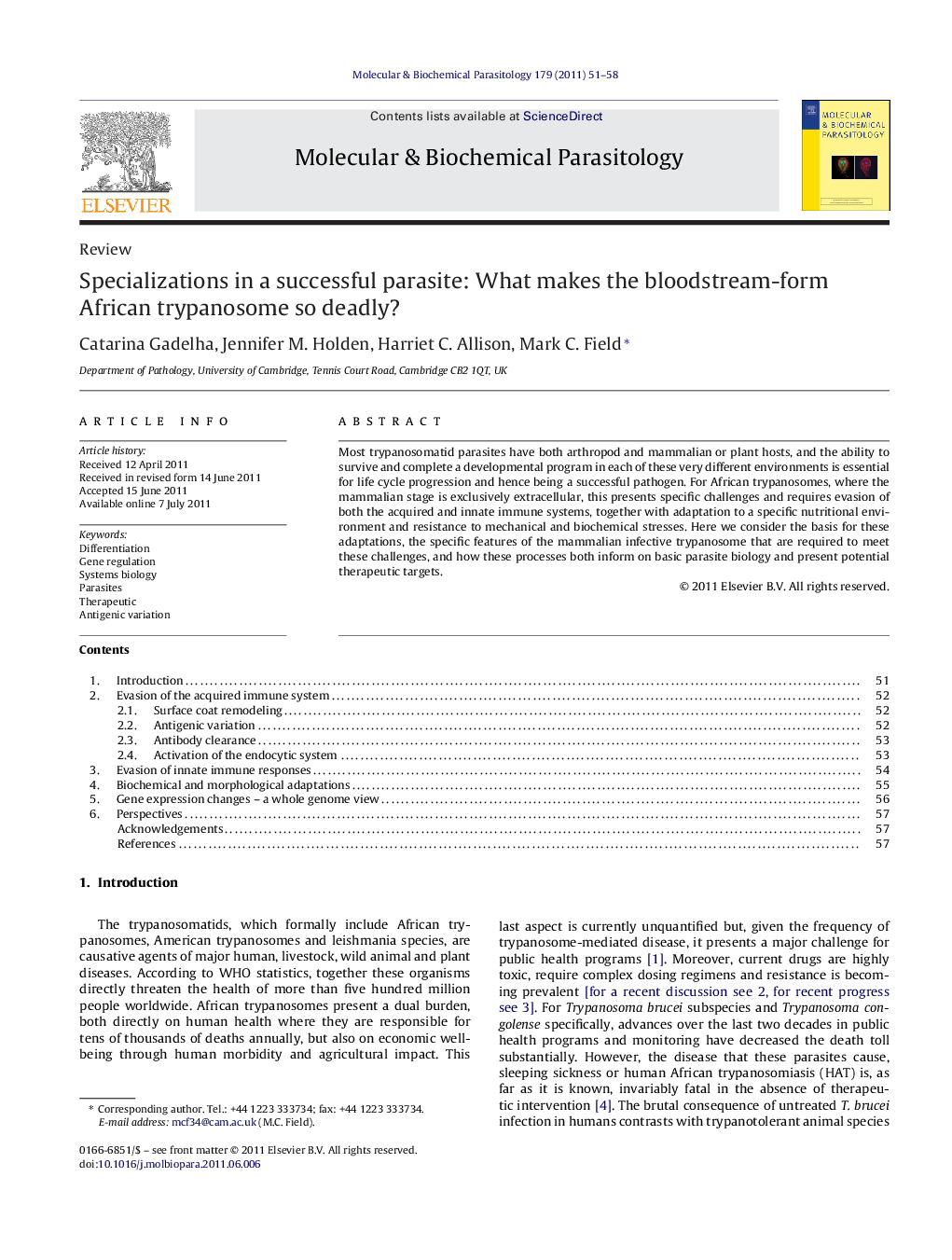| Article ID | Journal | Published Year | Pages | File Type |
|---|---|---|---|---|
| 5915656 | Molecular and Biochemical Parasitology | 2011 | 8 Pages |
Most trypanosomatid parasites have both arthropod and mammalian or plant hosts, and the ability to survive and complete a developmental program in each of these very different environments is essential for life cycle progression and hence being a successful pathogen. For African trypanosomes, where the mammalian stage is exclusively extracellular, this presents specific challenges and requires evasion of both the acquired and innate immune systems, together with adaptation to a specific nutritional environment and resistance to mechanical and biochemical stresses. Here we consider the basis for these adaptations, the specific features of the mammalian infective trypanosome that are required to meet these challenges, and how these processes both inform on basic parasite biology and present potential therapeutic targets.
Graphical abstractDownload high-res image (127KB)Download full-size imageHighlights⺠African trypanosomes overcomes many challenges in the mammalian host. ⺠Firstly, a specialized morphology and biochemical processes adapting to the mammalian bloodstream common to all trypanosomatids. ⺠Secondly, antigenic variation and accessory immune evasion systems, common to all African trypanosomes. ⺠Thirdly, specific mechanisms to avoid innate immune defense mechanisms of humans.
